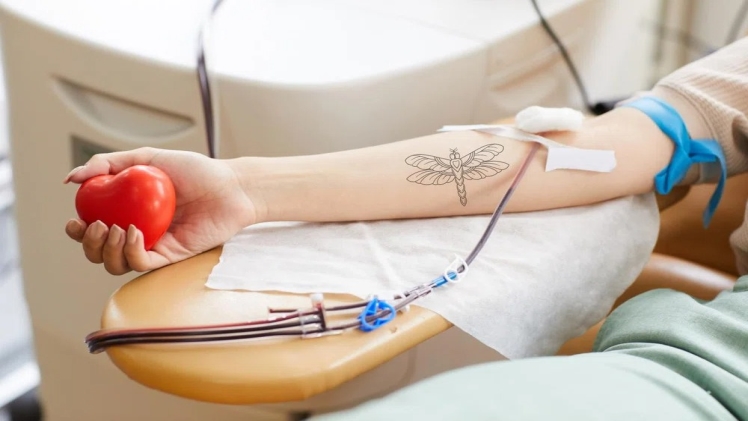Introduction
Donating blood is a selfless act that can save lives. Blood banks and donation centers are constantly in need of donors to maintain a steady supply of blood for patients in need. However, many potential blood donors wonder whether having a tattoo disqualifies them from giving blood. In this article, we will explore the relationship between tattoos and blood donation, addressing common concerns and dispelling myths surrounding this topic.
Historical Concerns
Historically, there were concerns about donating blood if you had a tattoo, primarily due to the potential risk of transmitting infectious diseases like HIV and hepatitis through contaminated needles and ink. In the past, many countries imposed waiting periods or restrictions on individuals with recent tattoos to ensure the safety of the blood supply.
Modern Tattoo Practices
Today, tattooing practices have evolved significantly. The tattoo industry is heavily regulated in many countries, with strict hygiene standards in place to prevent infection transmission. Licensed tattoo parlors use single-use, disposable needles and sterilized equipment to minimize the risk of infection. Reputable tattoo artists follow these guidelines to protect their clients and maintain their businesses’ integrity.
Tattoos and Blood Donation
The rules and regulations surrounding blood donation for individuals with tattoos vary by country and organization, but the general consensus is that having a tattoo does not automatically disqualify you from donating blood. However, there are some essential considerations to keep in mind:
Wait Periods: Some blood donation centers may have waiting periods after getting a tattoo, typically ranging from a few days to several months. This precaution allows any potential infection to become detectable, ensuring the safety of the blood supply.
Reputable Tattoo Parlors: It is crucial to get your tattoo from a licensed and reputable tattoo parlor that follows strict hygiene protocols. Choosing a professional establishment minimizes the risk of infection and can help you avoid unnecessary blood donation deferrals.
Individual Assessments: Blood donation centers typically assess donors on an individual basis. They may ask you specific questions about your tattoo, including when and where you got it, as well as the tattoo artist’s credentials. Honesty in answering these questions is crucial for both your safety and the recipient’s.
Infection-Free Period: The waiting period may vary depending on the organization’s policies. Some places may have a 48-hour waiting period, while others may require you to wait several months. Be sure to check the guidelines of your local blood donation center.
Medical Evaluation: Before donating blood, you will undergo a medical evaluation that includes a review of your health history and a brief physical examination. This is standard practice for all potential donors and helps ensure the safety of both the donor and the recipient.
Conclusion
In conclusion, having a tattoo does not necessarily disqualify you from donating blood. The key is to follow safe tattoo practices and be aware of any waiting periods or restrictions that may apply in your area. The tattoo industry has come a long way in ensuring the safety and hygiene of its practices, and blood donation centers have adapted their policies accordingly.
If you are interested in donating blood and have a tattoo, it is essential to check with your local blood donation center or organization for specific guidelines and requirements. Your eligibility may depend on factors such as the timing of your tattoo and the cleanliness of the establishment where you got it.
Ultimately, the primary goal is to maintain the safety and integrity of the blood supply while allowing as many eligible donors as possible to contribute. By staying informed and following the recommended guidelines, individuals with tattoos can continue to make a valuable and life-saving contribution to their communities through blood donation.


